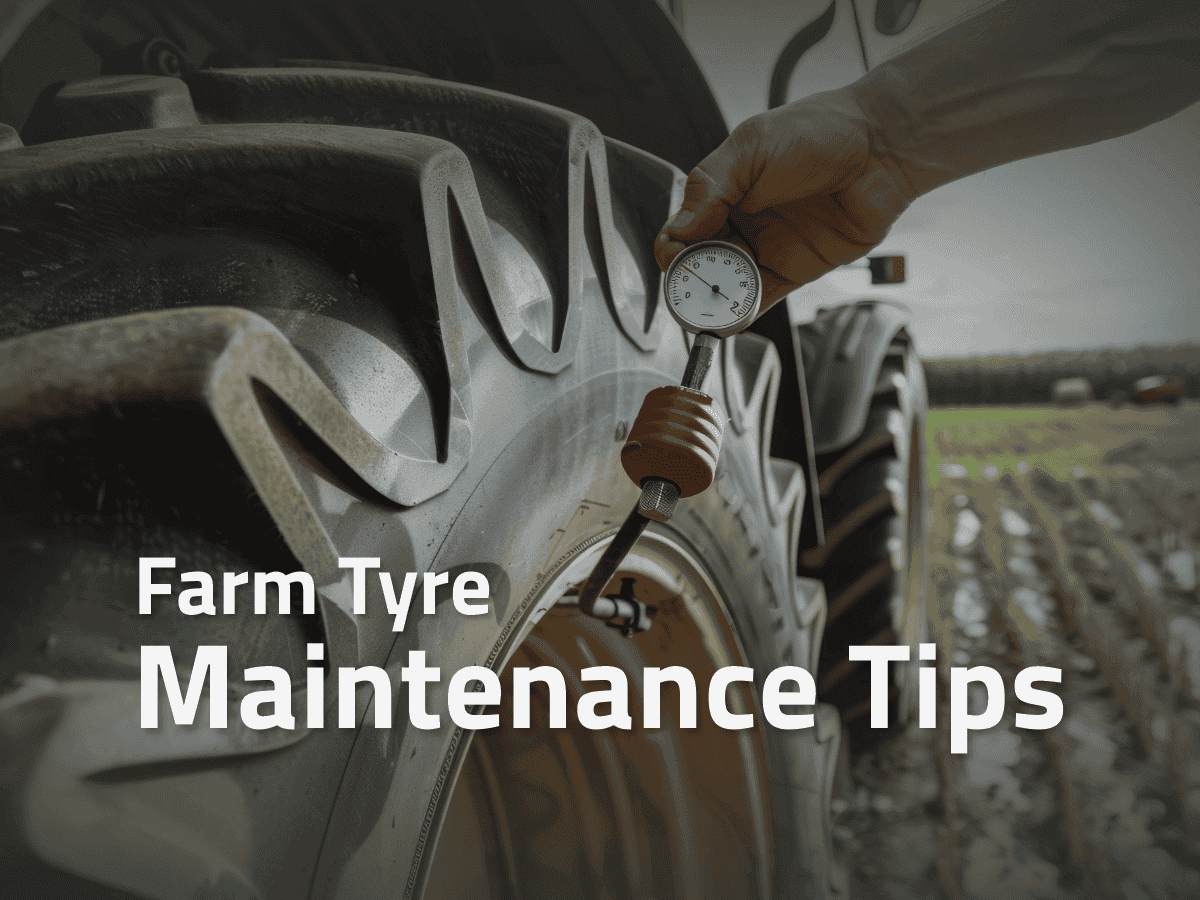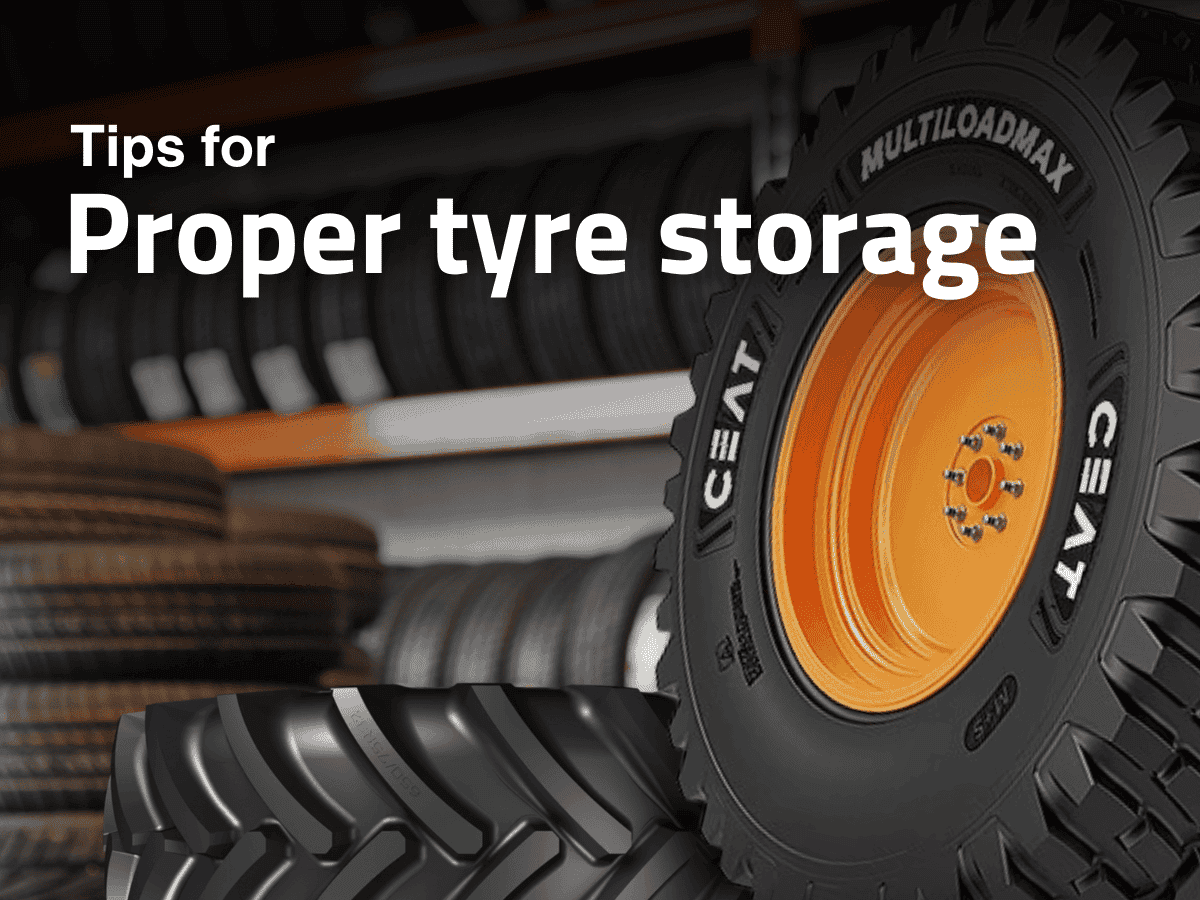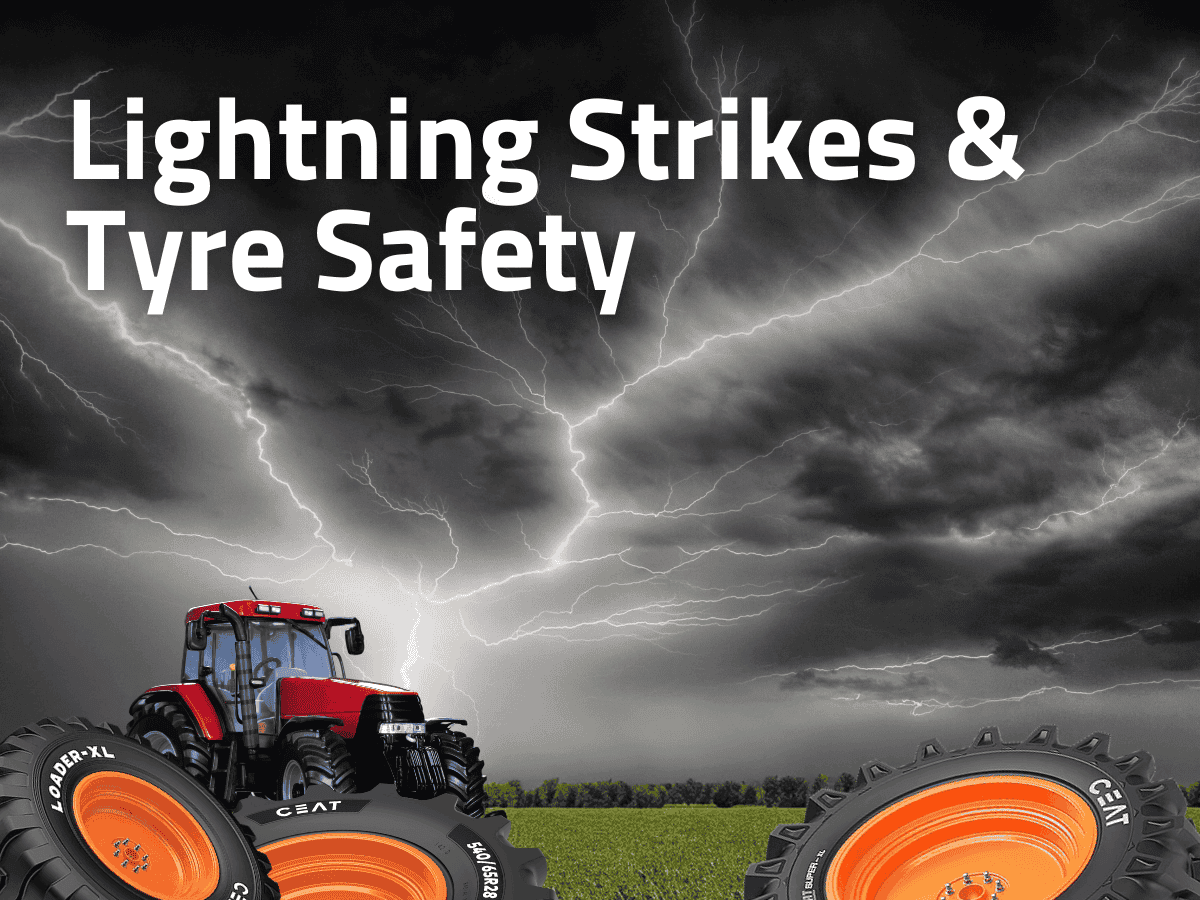ceat-speciality:blogs-tags/all,ceat-speciality:blogs-tags/tyre-care
Tyre Maintenance Tips for a Thriving Farm
Mon, 17 Feb 2025 | PRODUCTS
On a farm, reliable equipment is essential for smooth daily operations. Tractors, harvesters, and other agricultural machinery are vital to ensuring that crops are planted, maintained, and harvested effectively. However, one often overlooked component of this machinery is the tyres. While farmers may focus on engine maintenance or fuel efficiency, tyre care is just as crucial for ensuring safety, productivity, and cost savings.
Agricultural tyres bear the weight of heavy equipment, handle challenging terrains, and navigate everything from muddy fields to rocky roads. Over time, improper maintenance can lead to premature tyre wear, reduced performance, and increased fuel consumption.
To ensure your tractor tyres last longer and perform optimally, here are some essential maintenance tips that will keep your equipment running smoothly and your farm thriving.
1. Regularly Check Tyre Pressure
One of the simplest yet most important aspects of tyre maintenance is checking tyre pressure regularly. Over- or under-inflated tyres can lead to inefficient performance, uneven wear, and reduced fuel efficiency. Too much air can result in a harsh ride and increase the chances of tyre blowouts, while too little air causes the tyres to wear unevenly and increases rolling resistance, leading to higher fuel consumption.
To maintain proper tyre pressure, use a reliable air pressure gauge to check the pressure at least once a week, especially during peak seasons when your machinery is being used intensively. Be sure to adjust the pressure based on the load your equipment is carrying. Always follow the manufacturer’s recommended tyre pressure, which can typically be found in the vehicle’s manual or on the sidewall of the tyre.
2. Inspect Tyres for Damage Regularly
Farm machinery operates in challenging environments. Tyres are exposed to sharp rocks, debris, uneven terrain, and even chemicals like fertilisers and pesticides. Regular inspections are essential to identify cuts, punctures, bulges, or any other damage that may compromise tyre integrity. A damaged tyre can lead to unsafe working conditions, costly repairs, and lost time during crucial planting or harvest periods.
Take the time to visually inspect your tyres daily or weekly, especially before and after intense use. Look for embedded objects, such as nails or glass, which could lead to slow punctures. Check for cracks or bulges on the sidewalls, as these indicate internal damage that could cause the tyre to fail unexpectedly. If you spot any damage, replace or repair the tyre promptly to avoid more significant problems.
3. Rotate Tyres to Ensure Even Wear
Just like car tyres, farm tyres benefit from regular rotation. Uneven wear can result from consistently using the same tyre position on a vehicle, leading to imbalanced performance. For example, front and rear tyres on tractors may wear differently due to varying loads, steering forces, or road conditions.
Rotating tyres is a simple task that ensures even wear, maximizes tyre life, and enhances the overall efficiency of your equipment. Depending on the type of machinery, rotating tyres can be done every 100 to 150 hours of use or every season. If you are unsure about when to rotate your tyres, consult your vehicle’s owner manual or seek advice from a professional.
4. Maintain Proper Wheel Alignment and Balancing
Just like a car, ensuring that your farm equipment's wheels are aligned and balanced properly is key to efficient tyre maintenance. Misalignment and improper balancing can cause tyres to wear unevenly and prematurely, affecting not just tyre longevity but also the overall performance of the machinery.
In addition to uneven tyre wear, improper alignment can cause vibrations and reduce comfort during operation. Misalignment can also put additional strain on your equipment, increasing fuel consumption and reducing overall efficiency. Be sure to have your equipment’s alignment checked and adjusted regularly by a professional to avoid long-term damage.
5. Monitor Tyre Tread Depth
The tread on agricultural tyres is essential for providing grip and traction in various field conditions. As tyres wear down, the tread depth decreases, resulting in less traction, particularly on wet or muddy surfaces. This can lead to slippage, reduced stability, and even accidents.
For optimal safety and performance, check the tread depth regularly, especially if your machinery is used frequently in muddy or slippery conditions. If the tread is worn down to the minimum depth recommended by the manufacturer, it is time to replace the tyres. Keeping an eye on tread depth not only ensures better safety but also boosts productivity by maintaining excellent traction.
6. Choose the Right Tyres for Your Operations
Selecting the right tyres for your farming needs is crucial. Different farming operations require different types of tyres. For example, if you operate heavy machinery on soft, muddy ground, you may need tyres designed for better flotation to prevent sinking. Alternatively, if you work on rocky or uneven terrain, you might want tyres that offer reinforced sidewalls for added durability.
Make sure to select tyres that are designed to meet the specific requirements of your farm's conditions. Consult with a tyre expert to ensure you choose the best tyres for your machinery’s tasks, from planting to harvest. Investing in the right tyres will not only improve performance but also reduce wear and tear on both the tyres and the equipment.
7. Proper Storage of Spare Tyres
Tyres that are not in use should be stored properly to prevent degradation. Exposure to direct sunlight, extreme temperatures, or moisture can cause rubber to crack and weaken over time. To maintain the condition of your spare tyres, store them in a cool, dry place, away from direct sunlight and chemicals. If possible, keep them off the ground and elevate them to avoid moisture accumulation.
Conclusion
Effective tyre maintenance is a crucial element in ensuring the longevity and efficiency of your farm machinery. Remember, investing time and resources in tyre maintenance today will save you money and stress in the future, allowing your farm to thrive year after year.
At CEAT Specialty, we understand the unique demands of farming operations and offer high-quality tyres tailored for agricultural machinery. Our tyre solutions keep your farm run smoothly!
































































































































